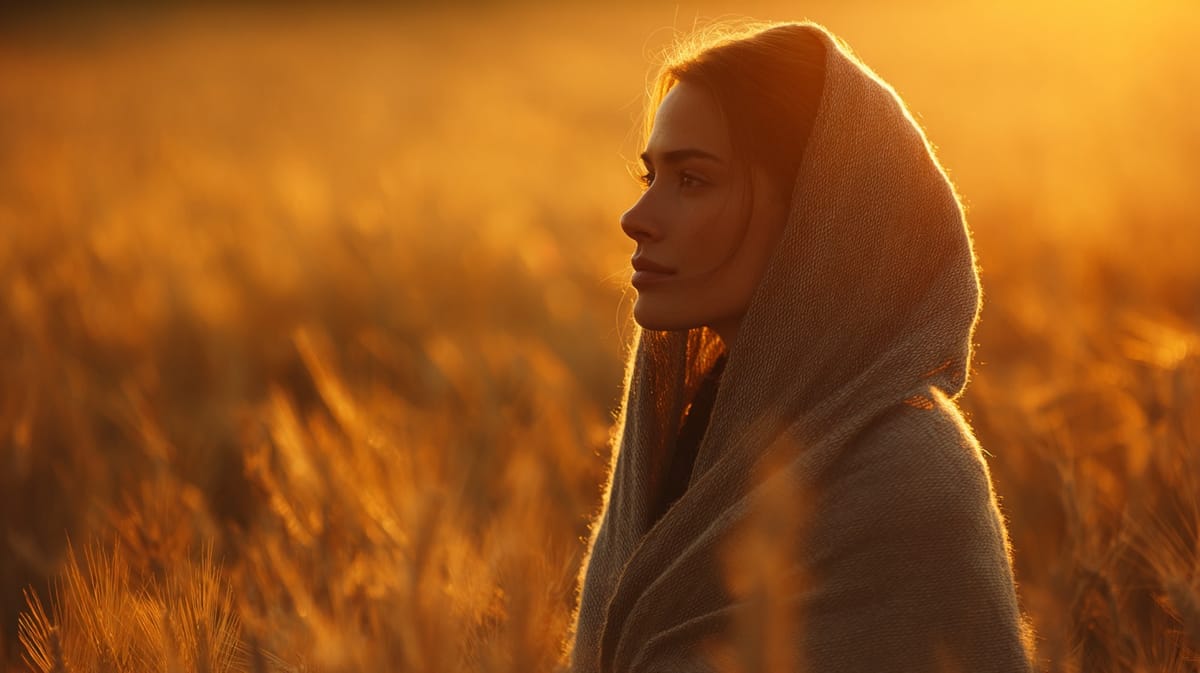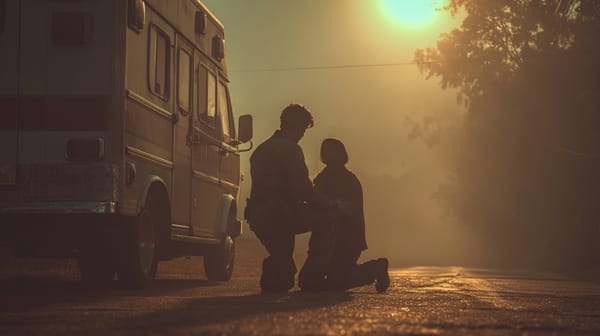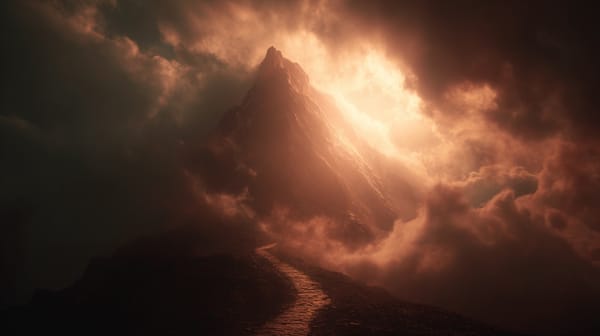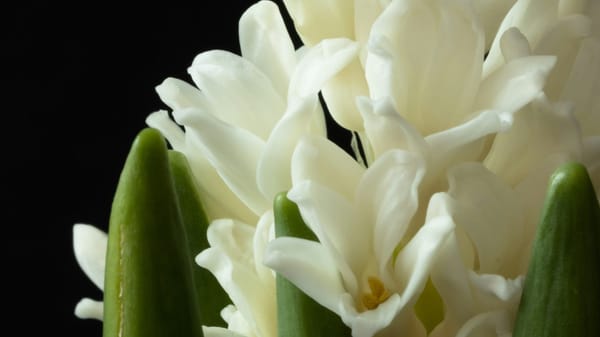Fairhaven Sermon 9-21-2025

Summary
In this week’s service, Rev. Peg Bowman delivered a sermon focusing on the story of Ruth from the Bible, concluding her series on childhood stories. She emphasized that while often presented as a simple tale for children, the story of Ruth holds deeper meaning for adults, particularly within its Jewish context and as a reflection of our own spiritual journeys. The sermon traced Ruth’s story from her origins in Moab, following Naomi's return to Bethlehem amidst famine and hardship, through Ruth’s unwavering loyalty and eventual marriage to Boaz, a pivotal event that ultimately led to the lineage of King David and, consequently, Jesus Christ.
Rev. Bowman highlighted parallels between Ruth’s journey as a foreigner finding acceptance and belonging with our own experiences of faith, emphasizing that we too were once strangers to God but have been brought near through Jesus. She concluded by drawing a hopeful comparison between Ruth and Boaz’s betrothal and our own relationship with Christ, suggesting that while the path ahead may be uncertain, a future of joy and belonging awaits those who remain faithful.
Transcript
Just a little cultural footnote, Orpah there. That's where Oprah got her name. For those of you who might not, it was somehow misspelled or misunderstood when she was born. But that's where her name comes from.
So here we are. So today will be my final installation of our Bible Stories from Childhood series. We have one more from Pastor Dylan next week, but this is my last one with you, so at least for now. And I've saved my favorite one for last, the story of Ruth.
I love Ruth. A moment ago we heard parts of Ruth chapters 1 and 2, and I will also draw on chapters 3 and 4 as well, so the entire book, we're going to cover that very briefly. So if you want to, feel free to grab a pew Bible and follow along. I will start in chapter 1 and move straight through.
Ruth is found right after Joshua and Judges in the Scriptures. So the story of Ruth is one of those stories whose message gets richer as we get older. As children, when we heard this story, we may have learned from Ruth things like that God takes care of us when we are faithful, or what it means to have or to be a good friend, or that we should help other people even if it's not always easy. And these are all good lessons that we can take from this story of Ruth.
But as adults, there's a lot more to see. First off, the story of Ruth is not meant to be a children's story. There are some very adult themes in here. Secondly, the story of Ruth is a very Jewish story, and what I mean by that is that the story assumes that we, the readers, know the law of Moses and specifically what Moses said about foreigners and about poverty and about family relationships.
And third, most important, the story of Ruth is our story, yours and mine. And I'm going to get back to that at the end, but let's begin at the beginning. The stories found in the book of Ruth take place during the time of the book of Judges. This was after the Israelites have left Egypt, after they've arrived in the Promised Land, but before Israel has a king.
And during this time, the people of Israel had amazing personal freedoms. They had the law of Moses to guide their life together, and they had regional judges who had the background and the authority to settle any legal disagreements or disputes that came up. But imagine this if you can. They had no central government.
no senators or representatives or anything like that, no states, no governors, no mayors, and as a result, no taxes. As a citizen of Israel, one's only responsibility was to worship God in the ways that Moses taught and to bring gifts and sacrifices to worship, which were then used to maintain the tabernacle and to assist the poor, as well as being part of the celebration of worship. Because when you brought your animals and offered them, you would then have a feast afterwards after the animals had been roasted. Okay, so that's it.
Apart from that, every person was free to live as they best understood God's word. Now having said all that, life still wasn't always perfect. Back in those days, people of course had no electricity, no refrigerators, no supermarkets. Okay.
I mean, they depended on the crops that they planted and the animals that they tended to stay alive. And if a year came along that was very dry, like this past summer has been for us, going hungry was a real possibility. And that's what happened at the beginning of the book of Ruth. There was a famine.
It was very dry. All the food, the plants died, the animals died, the food was gone. And a family from Bethlehem, a town whose name means house of bread, found themselves without any bread. This is a family of four, Elimelech, whose name means My God is King, and the mother Naomi, whose name means Pleasant.
And you put those two together, you could say that life is pleasant when God is King. Okay, so that works. But in this case, something was wrong because their two sons were named Malon and Chilion or Kilion, which means sickly and ailing. So for some reason, maybe because of the famine, these boys were not thriving.
And Elimelech and Naomi decided the only thing that they could do was to leave home and go to another country. So they became immigrants in the country of Moab, a country on the opposite side of the Dead Sea from Bethlehem, about 40 or 50 miles away. And it took about 10 days to walk there, not because it was so far, but because the land was so rough and mountainous. So this family of four came to this foreign land, this Moab, where people spoke another language, where they worshiped another god called Chemosh, the god of war and destruction.
And how difficult was it for them to learn that new language and that new culture and to make friends and to stay true to their god at the same time and to find a place to settle and to farm and raise livestock and start all over again. As we imagine putting ourselves into their shoes and imagine being there, we come close to understanding where we are now because we also worship the one true and living God. We also live among a people where many people worship something other than God, if they worship at all. But here's where we find ourselves, and being strangers in a strange land, we set up household and we do the best we can for our families and for our neighbors.
But it's kind of like the old hymn says, and this is an old, I think this one comes from the Baptist hymnal, I have not found it in the Methodist hymnal yet, but you may have heard it. It's an old hymn that says, This world is not my home, I'm just a passing through. My treasures are laid up somewhere beyond the blue. The angels beckon me from heaven's open door, and I can't feel at home in this world anymore.
That's how Naomi and Elimelech felt. This wasn't their home. This place could never be their home, but they did the best they could where they were. and after a few years, Elimelech passed away, and Naomi found wives for their sons named Orpah and Ruth, and the next generation started setting up household.
But then tragedy struck. Malon and Kilion also died, and the women were left alone, without children, without defense, and with no way of making a living. Naomi, brokenhearted, heard that there was food again in Bethlehem, so she started to head back there. And the young women went with her at first, but Naomi said to her daughters-in-law, Go back to your father's houses.
You are still young. You can still find other husbands. As for me, I'll go home and see if I can find a relative to live out my days with. And the women wept because they loved each other and did not want to say goodbye.
But Orpah, she saw the logic in Naomi's thinking and after a while she went home. But Ruth wasn't having it. And Ruth spoke those words which we hear so often at weddings. But how often have they spoken to a mother-in-law as they are here? Ruth said to Naomi, Entreat me not to leave you or to turn back from following after you, for wherever you go, I will go, and wherever you lodge, I will lodge.
Your people shall be my people, and your God my God. Where you die, I will die, and there will I be buried. The Lord do so to me, and more also, if anything but death parts you and me. Sometime during those years of being married to her son, Ruth had become a believer in the God of Israel.
Ruth, who was still standing in her own country, near her relatives at this point in time, speaking her own language, gives it all up out of love and loyalty to God and to Naomi. So Ruth's story is our story. Like Ruth, before we met Jesus, we were foreigners to God's people. The language of faith was foreign to us.
And technically, we still are immigrants like Ruth was. This world is not our home, but somewhere along the way, For those of us who know Jesus and claim his name, we made a decision to leave the ways of this world behind and follow Jesus into a new world, into God's kingdom. We changed our citizenship from one country to another, just like Ruth did. But I'm getting a little bit ahead of myself.
Back to Ruth. So Naomi, the mother-in-law, she knows that this move is not going to be easy for Ruth. Thank you. Ruth has a new language to learn.
She has a new country to get to know. And Moabites were despised by the Israelites because Moab had frequently been at war with Israel. So this wasn't going to be easy. But eventually Naomi and Ruth arrived back in Bethlehem, and the people who knew Naomi back in the old days, who saw her now, gasped at the change.
Naomi said to them, Don't call me Naomi anymore, which means pleasant. She says, Call me Mara, which means bitter, because the Lord has dealt bitterly with me. And the women arrived in Bethlehem at the beginning of the barley harvest. And immediately Ruth started following the law of Moses.
She went to the nearest farm. As the law of Moses said, she followed behind the harvesters and picked up anything that they missed. The law of Moses said that farmers were not to harvest to the edge of their fields or to go over a field twice, but they were to leave a few stalks behind for the poor and the foreigner. And she said, And Ruth was both poor and a foreigner.
So she worked hard in those fields, and as she was noticed by Boaz, the owner of the field, he asked about her and he listened to the praise that the harvesters spoke about her. They said to Boaz, she's that young Moabite, who came back with Naomi. She said, please let me glean and gather among the sheaves. And she's been on her feet from early this morning until now without even resting for a moment.
God, that's high praise from a farmhand because harvesting is not easy work. Even today, we hire foreigners to work our fields doing some of the work that none of us want to do. And Ruth was doing it without pay except for being able to keep whatever she picked up. Boaz was moved by her hard work and her loyalty to Naomi and he said to Ruth, Don't harvest anywhere else.
I will tell my men not to bother you, stick close to my women, drink from the water the young men provide. And we heard a moment ago how Ruth responded to this kneeling face down on the ground and Boaz blessed her and said, May the Lord reward you for your deeds, the Lord under whose wings you have taken refuge. So we discover in this that Boaz is also a man of faith. And when mealtime came, Boaz invited Ruth to come and eat some bread and dip it in the wine, which might be a foreshadowing of communion, maybe? We're not sure about that, but it kind of looks like it.
When the day was over, Ruth had gleaned about an ephah of barley, roughly about a bushel, they say about 50 pounds of barley, by hand, and she brought this home to Naomi. And while they ate, Ruth told Naomi about the kindness of Boaz and everything that he had said. And Naomi praised God and said to Ruth, He's one of our nearest kin. Stick close to his women so that you won't be bothered as you work in the fields.
And Ruth finished out the barley harvest and then the wheat harvest, and she did well for the two of them. Meanwhile, Naomi was doing some thinking. She thought to herself, Ruth needs a husband, and we need a man in the family, and we need a son. And the law of Moses said that if a man died without having children, his brother should marry the widow and have children for him.
Now the details of this law are a bit involved. They include inheritances and all that kind of thing. But to sum it up briefly, here's what Moses said in Deuteronomy chapter 25. He said, If brothers are living together and one of them dies without a son, his widow must not marry outside the family.
Her husband's brother shall take her and marry her and fulfill the duty of a brother-in-law to her. And the first son that she bears shall carry on the name of the dead brother. That's the law of Moses, and that's what Naomi and Ruth knew. Okay.
The second passage I want to share that comments on this is from Jesus. And Jesus said this in answer to the Sadducees who didn't believe in resurrection back in the day. So the Sadducees made up this story that they thought disproved the idea of resurrection. Matthew's Gospel says that the Sadducees who say there is no resurrection came to Jesus with a question.
Teacher, they said, Moses told us that if a man dies without having children, his brother must marry the widow and raise up offspring for him. Now there were seven brothers among us, and the first one married and died, and since he had no children, he left his wife to his brother, and the same thing happened to the second and the third brother right down to the seventh, and finally the woman died. Now then, at the resurrection, whose wife will she be of the seven, since all of them were married to her? Because the Sadducees thought that this disproved the concept of resurrection because you couldn't possibly have a woman being married to seven men at the same time, right? So therefore resurrection must not exist. Jesus answered, You are in error because you do not know the scriptures or the power of God.
At the resurrection, people will neither marry nor be given in marriage. They will be like the angels in heaven. But about the resurrection of the dead, Have you not read what God said to you? I am the God of Abraham, the God of Isaac, and the God of Jacob. He is not the God of the dead, but of the living.
That's Jesus' word. And Naomi, of course, had not heard Jesus' comments on this, but she knew what Moses said. So she decides that Boaz should be the man to do this for Ruth. Boaz is not a brother, but he's a close relative.
And so Naomi tells Ruth what to do. She says, take a bath, put on perfume, dress up in your very best, and go down to the threshing floor and watch where Boaz lies down. When he's asleep, uncover his feet and lie down, and he will tell you what to do. So Ruth does this, and in the middle of the night, Boaz wakes up and finds someone at his feet and he says, Who are you? And Ruth answers, I'm Ruth, your servant.
Spread your cloak over your servant, for you are next of kin. Now, the Bible doesn't tell us this because everybody knew this back then, but Ruth had just proposed marriage. The cloak represented two people taking shelter together in a storm. And she's saying to Boaz, You are the kinsman redeemer.
Put a ring on it. So Boaz's answer tells us three things. First off, he's probably a bit older than Ruth, since he says, You didn't go after younger men. Second, that Boaz is pleased with and honored by the suggestion.
And third, that there's another man who's a closer relative, who stands between them. And Boaz will take care of this in the morning. So he gives Ruth all the grain she can carry to take home to Naomi and says to her, Don't be afraid. I will do for you all that you ask, for you are a worthy woman.
And the very next day, Boaz has a conversation with that other relative and finds out for certain that he's not interested in Ruth. So Boaz and Ruth are married and they have a son and they named him Obed and Obed was the father of Jesse and Jesse was the father of David, King David. These sons will form a dynasty that will reign for 400 years. If the people of Israel had not welcomed the foreigner Ruth into their community, King David would never have been born.
And without David, the family into which Jesus was born would never have existed. God's salvation works out one life at a time, one year at a time, one day at a time. So the story of Ruth is our story too. We also were once foreigners to God, but Jesus was born into our world as one of us, and He became our kinsman redeemer, our Boaz.
By the grace of God, faith wins and love wins. And the apostle Paul explains this in the book of Ephesians. He says, At one time, you Gentiles by birth, remember that you were at one time without Christ, being aliens from the commonwealth of Israel and strangers to the covenants of the promise, having no hope and without God in this world. But now in Jesus Christ, you who once were far off have been brought near by the blood of Christ.
So then you are no longer strangers or aliens, but you are fellow citizens with the saints and also members of the household of God. So Ruth's story is our story. The generosity of Boaz parallels the generosity of God, and Ruth's love for Boaz is like our love for God. Even when things seem dark and difficult, God's light is with us in a very real way.
As we keep the faith, as we keep on living God's way, guided by God's word, in some way that we can't see yet, there is a future being built. Right now, we are where Ruth and Boaz were on that night on the threshing floor. We are betrothed to Jesus, but with a lot more that has to happen before we can set up household. One theologian puts it this way, we accept God and our future without always knowing what either will bring.
But the wheels of time are turning and our future with Jesus will be like Ruth's, a future of royalty and majesty and joy. Amen.



